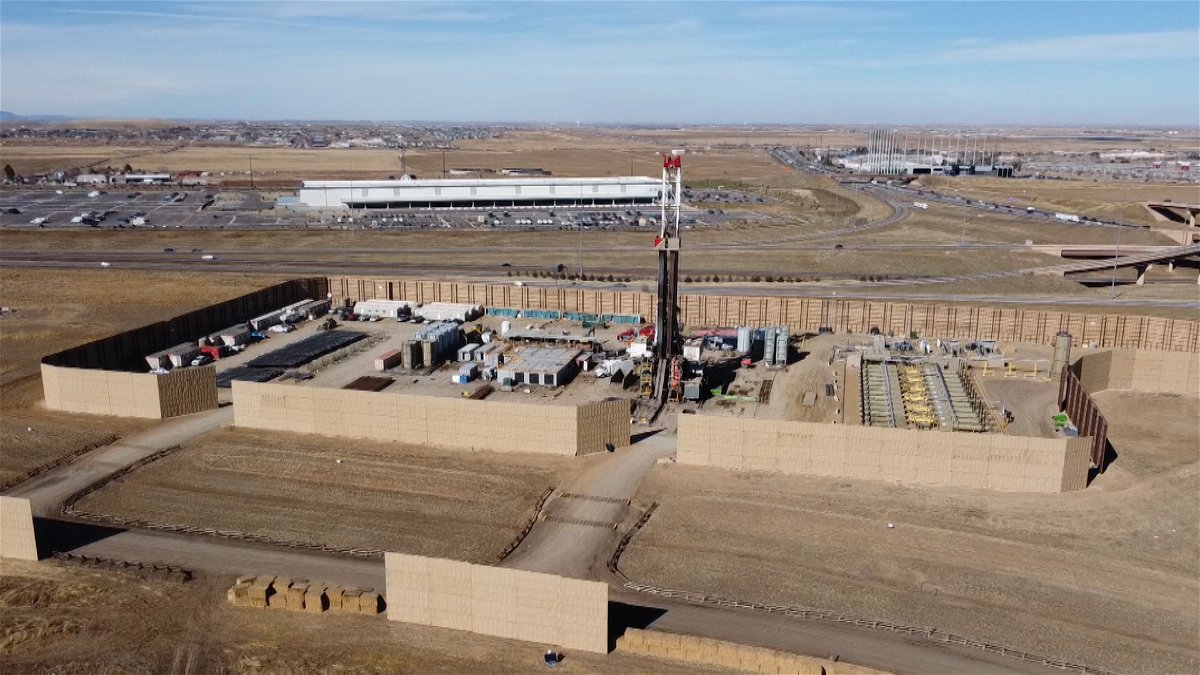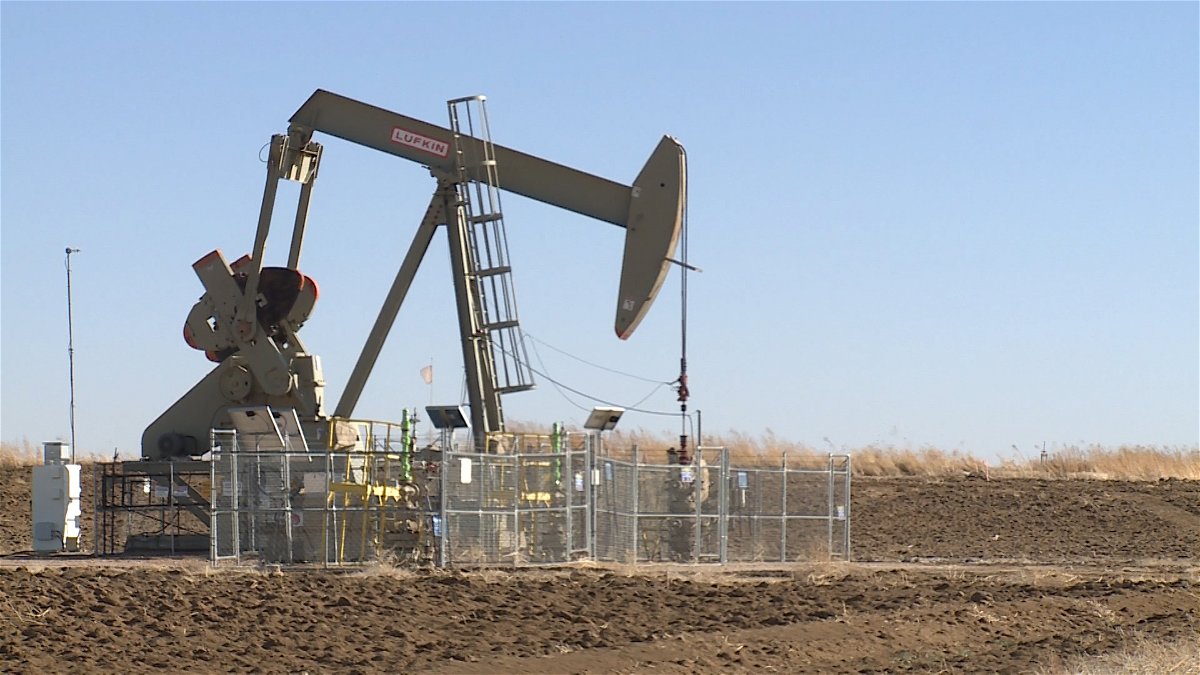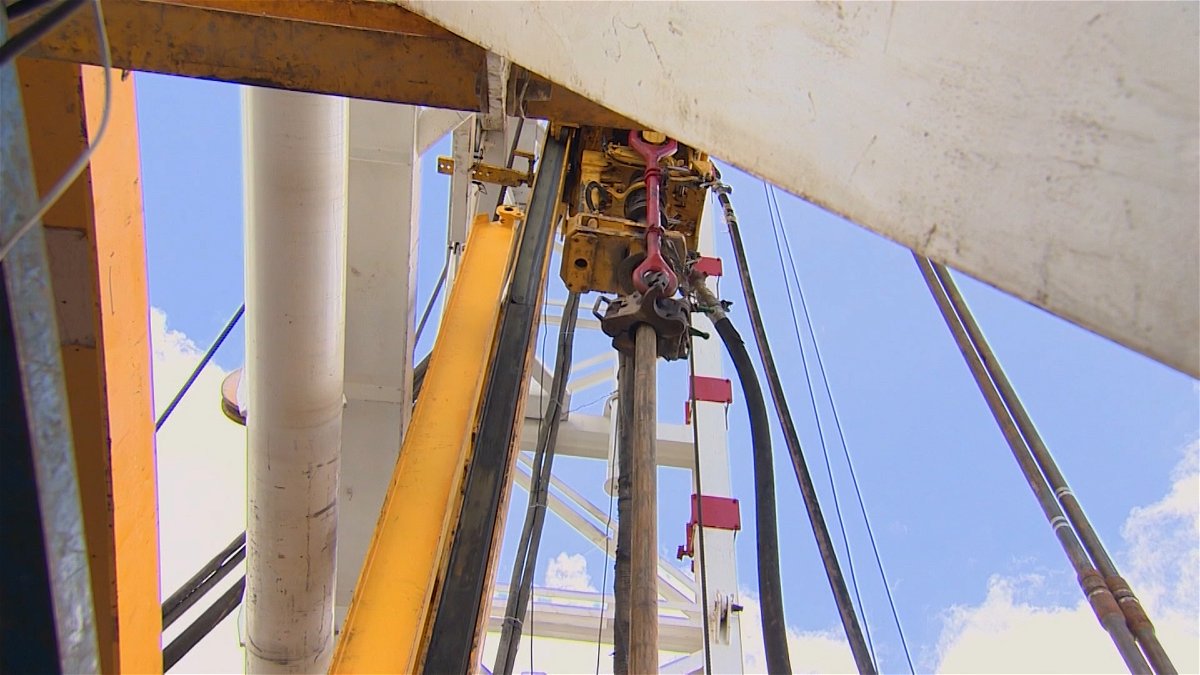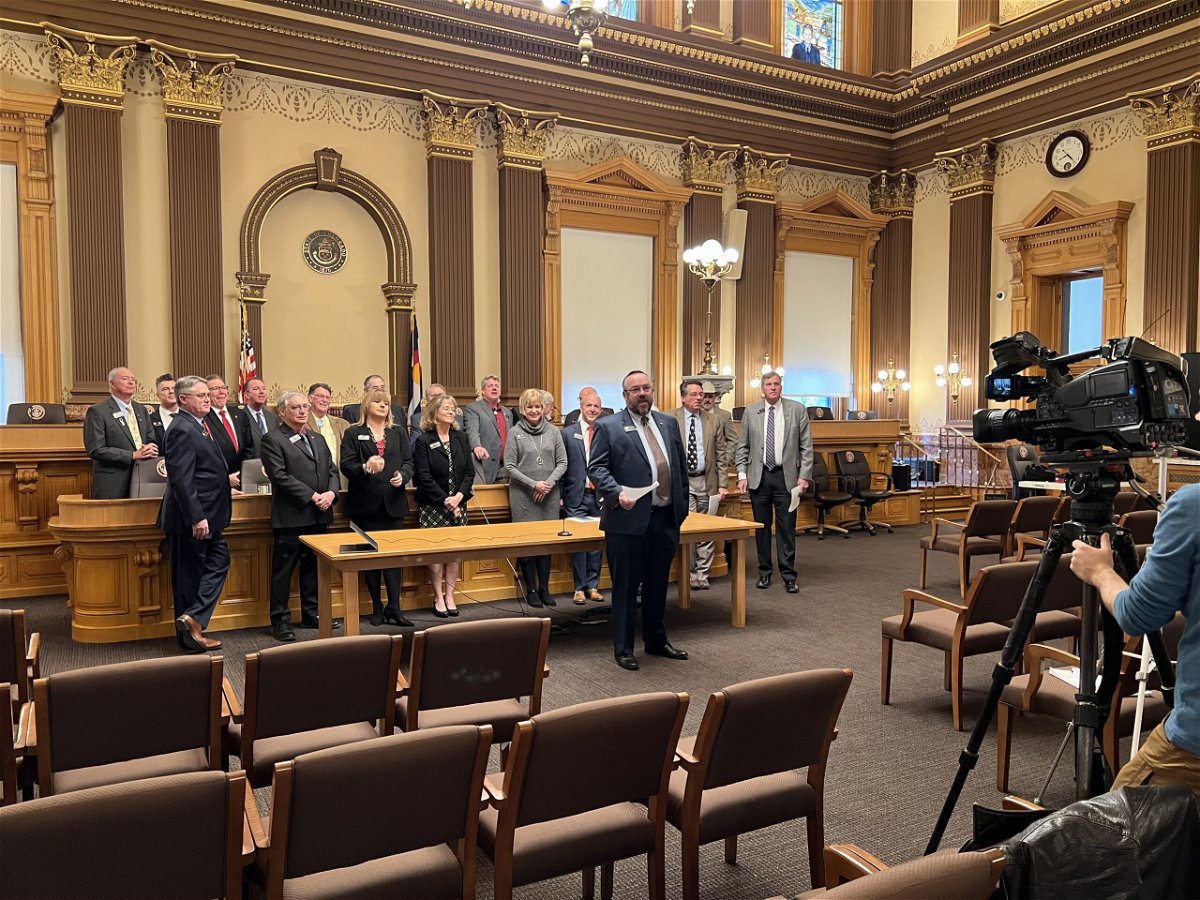Colorado lawmakers aim to boost state’s oil production
The conflict in Ukraine that resulted in the U.S. no longer importing oil from Russia only intensified a problem that already existed: the demand for oil in the U.S. exceeds the amount it produces.
Colorado is currently the fifth largest producer of oil in the country, and while it’s hardly visible in El Paso County or Pueblo County, it is the backbone of many economies north of Denver.
“It is our way of life,” explains Colorado House Minority Leader Hugh McKean, "it is our way of life. It is the lifeblood of what we do."
The Republican’s district includes the city of Loveland and other parts of Larimer County.

McKean says oil production in that area is down significantly.
"We've really seen a downturn, so you see people who are leaving our area, taking their kids out of our schools to go somewhere else, North Dakota, West Texas, go somewhere where there is a need for their service,” he says.
According to the Colorado Oil and Gas Conservation Commission, there was a steady increase in oil production in Colorado from 2012 to 2019, rising from roughly 50 million barrels per year in 2012 to nearly 200 million barrels in 2019.
However, since that time production has dropped more than 20 percent to just under 152 million barrels in 2021.

Lynn Granger is the executive director of the American Petroleum Institute – Colorado.
She says the pandemic is largely to blame for a nationwide slowdown in early 2020; however, Colorado has been especially slow to bounce back.
"I think what we have seen is that across the nation, that recovery has been fairly quickly. Unfortunately, here in Colorado, we have not been as quick to recover."
She believes the reason for that is both the state’s political and regulatory environment.
“Producers looked at their most prospective targets and unfortunately that was not Colorado,” she says, “I think what we have seen in Colorado is a lot of uncertainty and instability around our industry over the last few years, and that continues to this day.”
State regulators, however, argue that the industry is to blame for the lack of production.

Governor Jared Polis said in a CNN interview last week that there are plenty of active permits for sites that companies have chosen not to develop.
"You know there's over 2,000 (permits) in Colorado that have been approved and haven't been used. It's really a matter of when and how the industry chooses to invest and raise capital," he said.
Granger questions that number, claiming quite a few of those permits the governor referred to are either about to expire, or involve sites that aren't economically viable.
The oil and gas industry believes that we can get back to that 200 million barrels of oil per year mark in Colorado, or more, but not at the present rate of permit approval.
Granger says it can take a year or more for a company to prepare a permit application, submit it, and go through the approval process.
However, one group of Republican lawmakers hopes that will soon change.

The group unveiled a resolution Wednesday morning that urges the state to reduce the permit processing time to 90 days, claiming that will encourage a lot more industry investment.
“In 90 days, they should be able to accept a permit, and have the active permit out the door, and let somebody go to work,” says McKean, who was on hand Wednesday as well.
“There is absolutely no reason with the structure we have in place that the proper permits cannot get permitted, get out the door, and begin production.”
Granger believes increasing production in Colorado will bring down the price at the pump without damaging the environment, which cannot be said for produces in other states and countries.
“Anybody that is concerned about the environment and environmental impact should (1) want production to occur right here in the United States, and (2) more specifically they should want that production to occur right here in Colorado, because we have some of the most stringent regulations in the nation, and I would argue in the world when it comes to oil and gas production,” she says.
In 2018, Colorado voters rejected Proposition 112, a plan to expand the required distances between oil and gas projects and places like homes or schools.
However, Senate Bill 181 in 2019 changed the mission of the COGCC from an agency that fosters oil and gas development and operations to an agency that regulates the industry.
A year later, the Commission administratively put setback restrictions in place that were almost identical to the ones voters had rejected.
The industry maintains that those restrictions along with other costly and cumbersome standards make it difficult for companies to operate, but a spokesperson for the Commission told KRDO this week that there are still plenty of ways for companies to operate in a more protective way.
